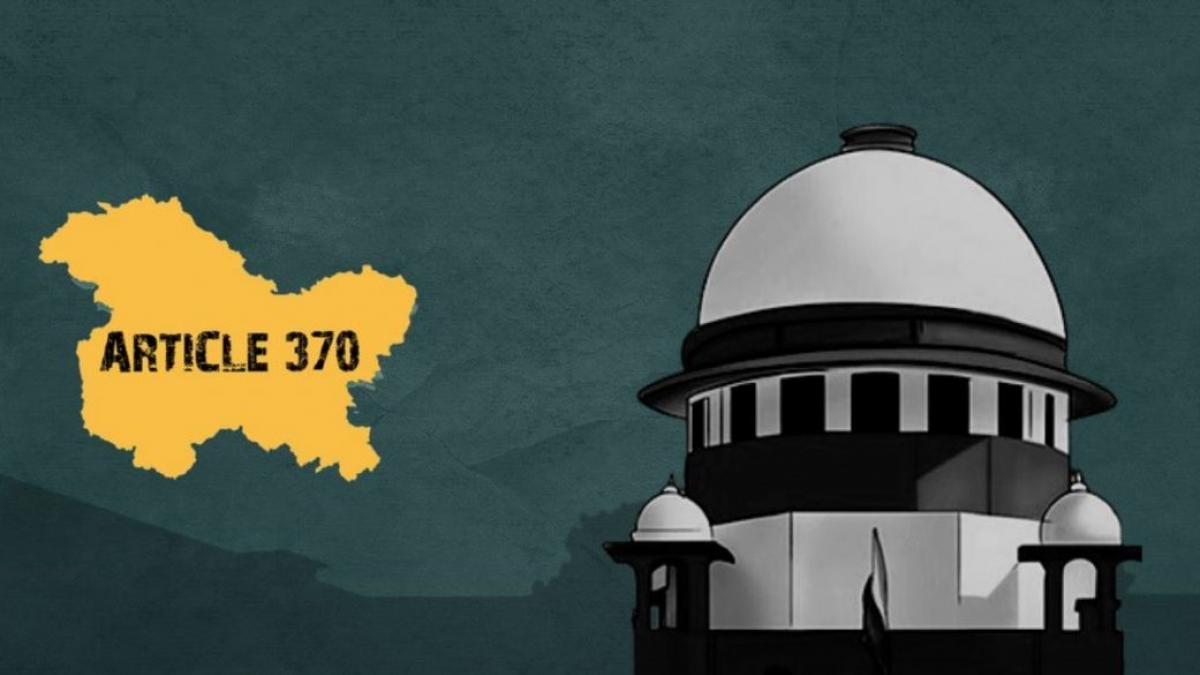The Abrogation of Article 370

In August 2019, the Indian government made a historic decision to revoke Article 370 of the Indian Constitution, which granted special autonomy to the region of Jammu & Kashmir.
This move sparked a range of reactions and discussions both within India and internationally.
Let's delve into the implications of this decision, the benefits it brings to Jammu & Kashmir, and the broader implications for India-Pakistan relations and counter-terrorism efforts.
Article 370:
Article 370, inserted into the Indian Constitution in 1949, granted special autonomous status to the state of Jammu & Kashmir, allowing it to have its own constitution, flag, and autonomy over internal matters, except for defense, foreign affairs, finance, and communications. Over the years, it became a contentious issue, with debates on its efficacy and impact on the region's development.
The Abrogation and its Impact:
The abrogation of Article 370 aimed to integrate Jammu & Kashmir more closely with the rest of India and bring about socio-economic development in the region. It revoked the special status, paving the way for the application of Indian laws, policies, and welfare schemes to the region. This move was seen as a step towards fostering greater unity and development in Jammu & Kashmir.
Prior to the successful abrogation of Article 370 in 2019, there were several attempts made by different governments to modify or repeal the article, albeit with limited success.
Here's a brief overview:
1954: Presidential Order: In 1954, the Indian government issued a Presidential Order under Article 370, extending several provisions of the Indian Constitution to Jammu & Kashmir. This order laid the foundation for integrating Jammu & Kashmir more closely with the rest of India while preserving its special status.
1964: Removal of Sadr-e-Riyasat: In 1964, the position of Sadr-e-Riyasat (Head of State) in Jammu & Kashmir was abolished, and the role of Governor was introduced. This move was seen as an attempt to dilute the autonomy granted under Article 370 and bring the region in line with the rest of India.
1975: Sheikh Abdullah's Accord with Indira Gandhi: In 1975, Sheikh Abdullah, the then Chief Minister of Jammu & Kashmir, signed an accord with Prime Minister Indira Gandhi, known as the "Kashmir Accord" or "Indira-Sheikh Accord." This agreement affirmed the special status of Jammu & Kashmir within the Indian Union but also brought it closer to the central government's control.
1986: The Rubaiya Sayeed Kidnapping Case: In 1986, Rubaiya Sayeed, the daughter of then Home Minister Mufti Mohammad Sayeed, was kidnapped by militants in Jammu & Kashmir. To secure her release, the government allegedly released several militants, leading to criticism of the government's handling of the situation.
2000s: BJP's Promises and Agitations: The Bharatiya Janata Party (BJP) has been vocal about its opposition to Article 370 and has frequently raised the issue in its election manifestos. However, its attempts to repeal or modify Article 370 faced opposition from regional parties and other stakeholders.
2014-2019: Narendra Modi Government's Attempts: During his first term as Prime Minister, Narendra Modi's government expressed its intention to abrogate Article 370. However, it faced challenges due to the political landscape and the need to garner support from various stakeholders, including coalition partners.
Despite these attempts, the special status of Jammu & Kashmir remained largely intact until August 2019 when the Narendra Modi-led government successfully abrogated Article 370 for good.
Benefits to Jammu & Kashmir:
The removal of Article 370 has opened up new avenues for investment, development, and infrastructure projects in Jammu & Kashmir. It has enabled the extension of central government schemes related to education, healthcare, and employment to the region, thereby improving the quality of life for its residents. Additionally, it has facilitated greater integration with the Indian economy, offering opportunities for growth and prosperity. The region now has a multiplex theatre. Imagine the deprivation of a part of our Country that remained for so long.
India-Pakistan Relations and Counter-Terrorism:
The abrogation of Article 370 has been viewed with concern by Pakistan, which has long sought to exert influence over Jammu & Kashmir. The move has heightened tensions between the two countries, with Pakistan alleging human rights violations in the region and India asserting its sovereign right to govern its territory. Moreover, the abrogation has posed challenges for terrorism emanating from Pakistan Occupied Kashmir (PoK), as India has strengthened its resolve to counter cross-border terrorism.
The abrogation of Article 370 represents a significant shift in India's approach towards Jammu & Kashmir, aiming to bring about positive change and development in the region. It has been welcomed by many as a step towards greater integration and progress. As India continues its efforts to stabilize the region and counter external threats, the abrogation of Article 370 remains a pivotal moment in its history.
Blog inspired by the movie Article 370 which is set against the backdrop of the revocation of the special status of Jammu and Kashmir, (popularly referred the "abrogation of "Article 370").

Comments
Post a Comment